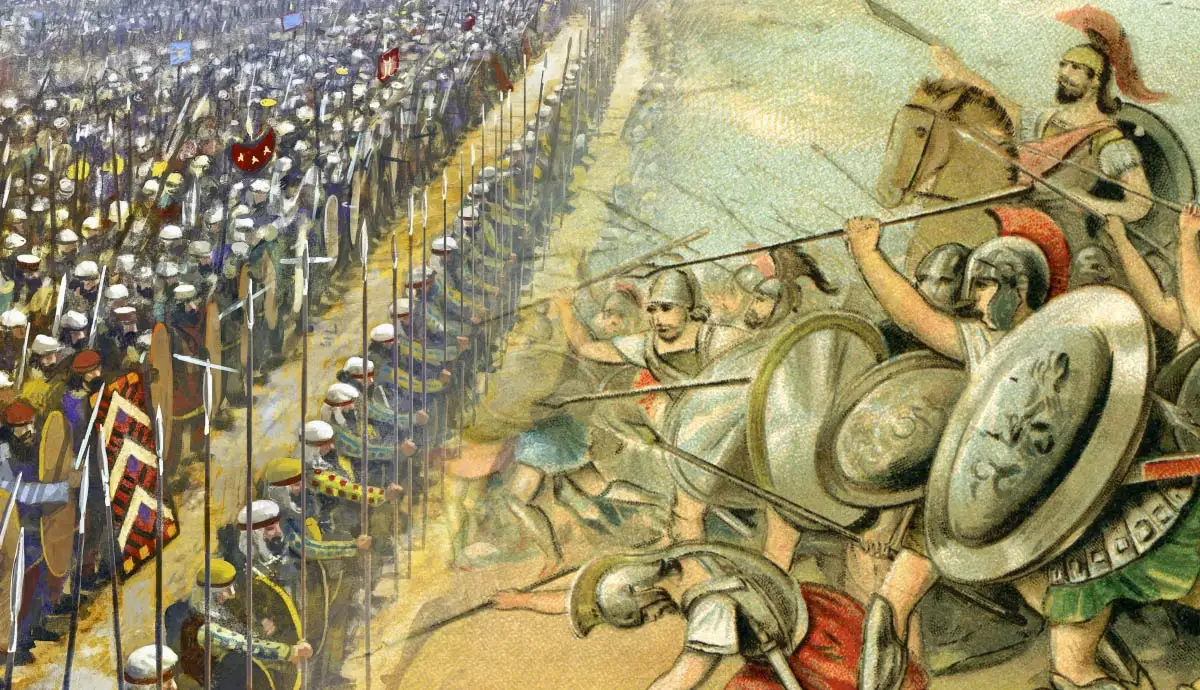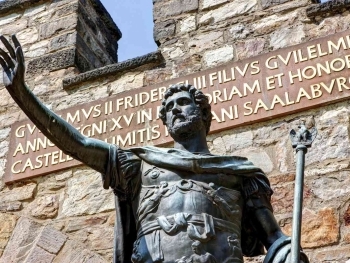In 490 BCE, the Persian Empire, one of the most powerful empires in the world, launched a massive invasion of Greece. The Persian army, led by King Darius I, intended to conquer the Greek city-states and add them to the Persian Empire. However, the Greeks were not about to go down without a fight. In a stunning upset, a small Greek force defeated the mighty Persians at the Battle of Marathon.
The Greek army was led by Miltiades, a skilled general who had spent time in the Persian court as a hostage. Miltiades knew the Persian army well and was able to use this knowledge to his advantage. The Greek army was vastly outnumbered, with only 10,000 soldiers compared to the Persian force of 25,000. However, Miltiades had a plan.
The Greek army was made up of soldiers from Athens and the nearby city-state of Plataea. Miltiades positioned his troops in a narrow valley between two mountains, which prevented the Persians from surrounding them. He also placed his strongest soldiers, known as the hoplites, in the center of the formation.
When the Persian army arrived, they were confident of victory. They outnumbered the Greeks and had a reputation for being unbeatable. However, they were not prepared for the Greek strategy. The Persians launched a frontal assault on the Greek center, where the hoplites were stationed. The hoplites formed a wall of shields and spears, known as a phalanx, which stopped the Persian charge in its tracks.
Meanwhile, the Greek wings advanced, pushing the Persian flanks back. This allowed the hoplites to attack the Persian center from the rear. The Persians, caught in a pincer movement, were quickly overwhelmed. The Greek army pursued the fleeing Persians, inflicting heavy casualties.
The Battle of Marathon was a stunning victory for the Greeks. They had defeated a much larger and better-equipped army through careful planning and skillful execution. The Persians suffered around 6,400 casualties, compared to only 192 for the Greeks. The Greek victory prevented the Persian invasion of Greece and boosted the morale of the Greek city-states.
The Battle of Marathon was a turning point in the history of Greece. It showed that a small, well-trained force could defeat a larger, less organized one. It also demonstrated the importance of strategy and tactics in warfare. The Greeks had used their knowledge of the terrain and the enemy to gain an advantage, rather than relying on brute force.
Today, the Battle of Marathon is remembered as one of the most significant battles in ancient history. It has inspired countless military leaders and historians throughout the centuries, and its lessons continue to be studied and applied to this day.




